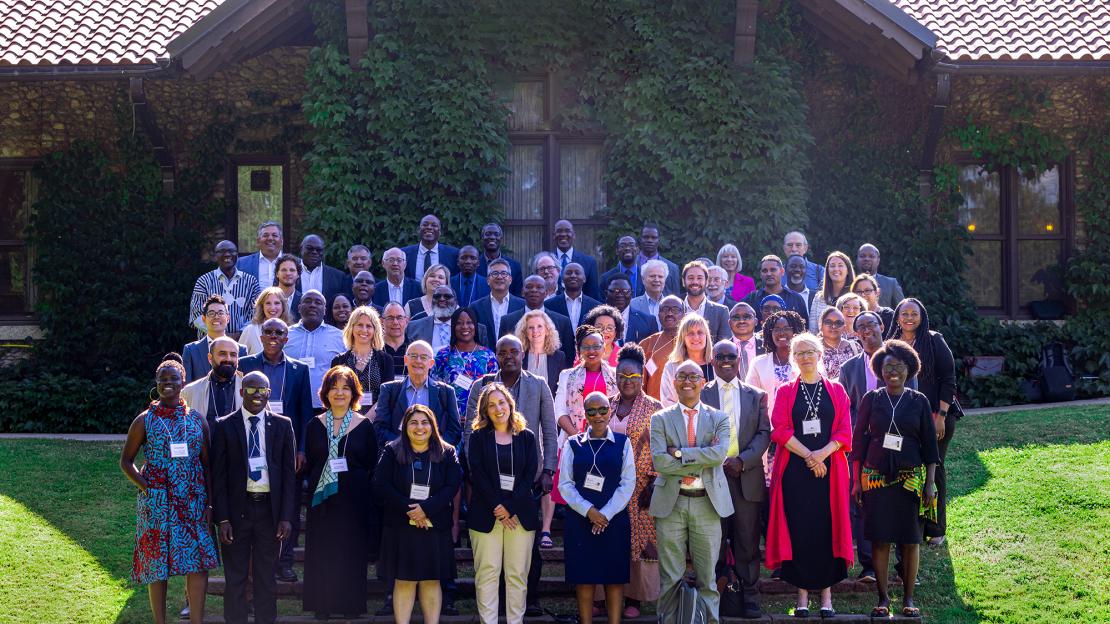When Ernest Aryeetey, secretary-general of the African Research Universities Alliance, said “collaboration opens doors” at a recent forum, he encapsulated why the University of Toronto and leading African institutions are deepening ties and strengthening partnerships that have global impact.
The University of Toronto and Africa Forum was the follow-up to a historic two-day summit held last June. At the summit — the first event of its kind — African diplomats, potential funding partners and academic leaders convened with U of T community members to pinpoint shared interests, priorities and which of the world’s most pressing issues could be addressed through collaborations.
“One of the things we did in Toronto last year was to meet some of the potential funders, and I’m very happy to see that over the last several months some initiatives have begun where funders have shown interest in what the African industries are doing and what they could do to impact the University of Toronto,” Aryeetey said.
The shared areas of interest that emerged at the summit became the discussion topics at the forum’s five breakout sessions — climate change; health and wellness; data science and artificial intelligence; leadership and governance; and entrepreneurship. Participants were more than 100 leaders, scholars, faculty and staff from the University of Toronto and associations and foundations across Africa, and representatives from partner institutions. The goal for the day was to build off last year’s ideas and momentum by thinking of concrete next steps and actions.
Wisdom Tettey, vice-president of U of T and principal of U of T Scarborough, and Joseph Wong, vice-president, international, of U of T, situated the goals of the event within U of T’s new International Strategic Plan, which runs from 2022 to 2027. Wong spoke about the four R’s, the principles learned from Indigenous scholars at U of T that lie at the core of the plan and drives the institution as it builds partnerships around the world: respect, relevance, reciprocity and responsibility.
“Collaboration is not something that we do as a peripheral activity but in fact it’s core to what we are as a global university,” Tettey said. “These principles incidentally dovetail with what colleagues at last year’s summit thought was really important for the work that we have committed to do together, so there was a meeting of minds on that.”
Ideas for tangible actions from the breakout sessions included examining how the Youth Energy Summit could be an avenue for young people to connect, and drawing lessons from the Acuna Foundation’s efforts to fund data collection efforts across Africa.
One of the two plenary talks was on ways institutions can advocate for reducing barriers to accessing research publications — barriers that prevent researchers from connecting, building off each other’s work, joining networks and accelerating discovery and knowledge. Wong also mentioned there has been an increase in co-publications with U of T faculty and scholars located in Africa between 2010 and 2022.
Wong himself recently returned from Kenya, where the mangrove forests on the country’s coast have an exceptional ability to absorb carbon. Wong’s research team is collaborating with the Kenyan government, several African research institutes, and community participants and organizations to learn more about local innovations into sustainable forest management, and how residents are harnessing these waterside ecosystems’ carbon-reducing abilities.
“One of the key lessons we take from this extraordinary experience are not only the lessons and the exemplar these cases present for Kenya, but also for the entire continent, and even more importantly, incredible insights for the rest of the world,” he said. “These are extraordinary insights that are a gift to the rest of the world.”
The forum had several speakers elaborate on various partnerships and the positive impacts they’ve had for Canada, Africa and the world. Katherine Rouleau is a professor in the department of family and community medicine at U of T who spoke about the decade-long partnership between the department and Addis Ababa University, the oldest university in Ethiopia. Faculty members collaborated to grow the country’s first family medicine university program.
The event ended with participants showing a determination to pursue concrete collaborative action in various forms, including initiating a new international collaborative project in one of the areas discussed that day, continuing ongoing collaborative projects or writing joint grant proposals to fund an international collaborative project.
“We are a university that not only wants to be present around the world but wants to make a real impact in people’s lives,” said Alexie Tcheuyap, associate vice-president and vice-provost, international student experience at U of T.
